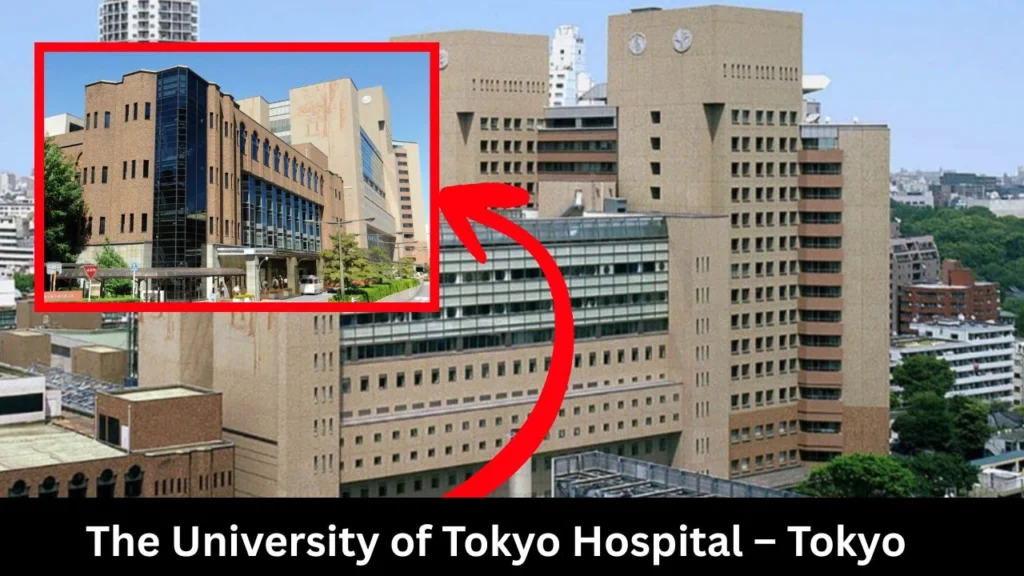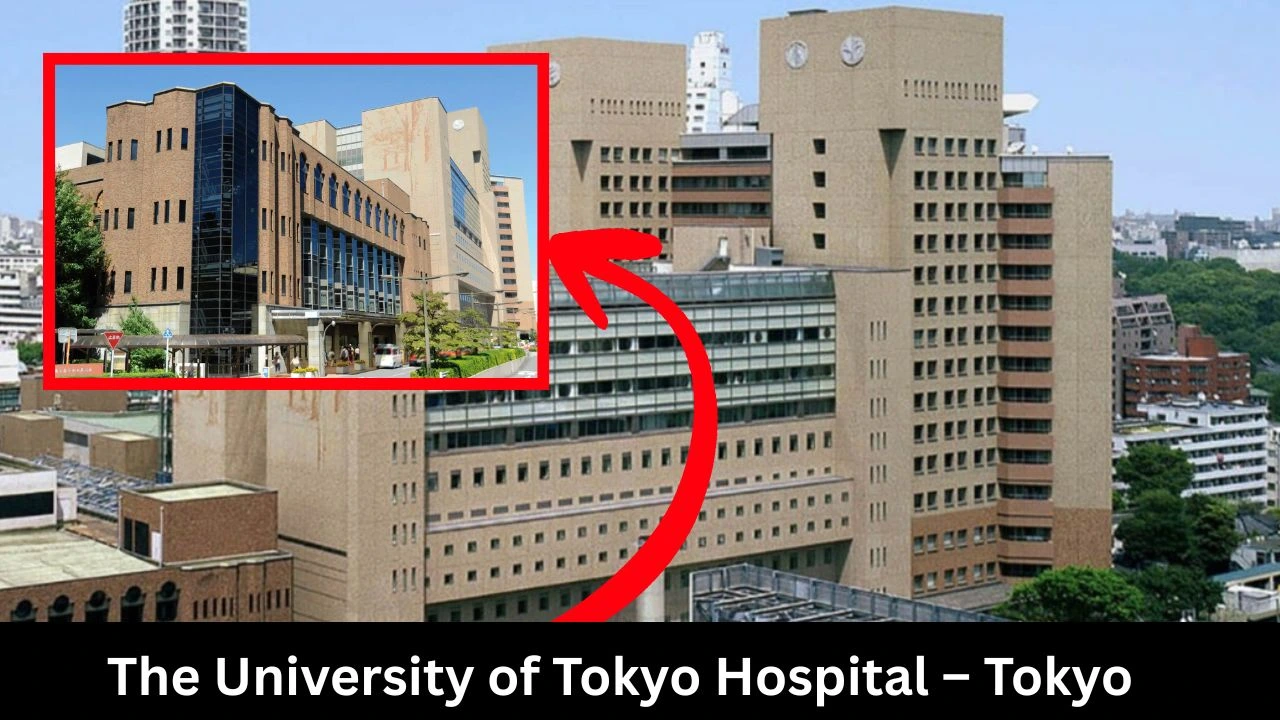Japan is globally known for its innovation, cleanliness, and attention to detail—and its healthcare system reflects the same excellence. With a blend of high-end technology, world-class medical expertise, and culturally compassionate care, Japan offers one of the best healthcare systems in Asia. In this article, we’ll explore the best hospitals in Japan, their specialties, and how to access them whether you’re a resident, tourist, or medical traveler.

Why Japan’s Hospitals Are Among the Best in the World
Japan has one of the highest life expectancies and lowest infant mortality rates globally, thanks to its effective and accessible healthcare system. The country offers universal health coverage under its National Health Insurance (NHI) program.
Key Features of Japanese Hospitals:
- Advanced robotic surgery and diagnostics
- High levels of hygiene, organization, and safety
- Highly trained, board-certified physicians
- Affordable and transparent costs
- International departments in top hospitals
Whether you need complex surgery or preventive care, Japanese hospitals offer efficient, high-quality services backed by technology and tradition.
1. The University of Tokyo Hospital – Tokyo
Overview
The University of Tokyo Hospital is one of Japan’s most prestigious medical institutions, known for academic research, surgical excellence, and a wide range of medical specialties.
Specialties
- Advanced surgery and robotic procedures
- Oncology and cancer research
- Cardiovascular treatment
- Infectious diseases
- Organ transplantation
The hospital also offers services in English and has an international patient center to help with everything from appointments to travel planning.
2. St. Luke’s International Hospital – Tokyo
Best Private Hospital for International Patients
St. Luke’s International Hospital is a favorite among expats, diplomats, and tourists in Tokyo due to its patient-centered approach and bilingual services.
Why Patients Prefer St. Luke’s
- English-speaking doctors and nurses
- Advanced diagnostics and preventive health screenings
- OB-GYN and maternity care
- Personalized cancer treatments
- Private rooms and high comfort
Its clean, calm atmosphere and premium service make it a top choice for international care in Japan.
3. Keio University Hospital – Tokyo
Academic Excellence Meets Innovation
Affiliated with Keio University, one of Japan’s top private universities, Keio University Hospital offers highly specialized care and conducts advanced clinical research.
Specialties
- Neurology and brain surgery
- Genetic and rare diseases
- Cardiovascular surgery
- Pediatric care and neonatology
It is also a designated core hospital for advanced treatment, playing a major role in national health initiatives.
4. Osaka University Hospital – Osaka
Kansai Region’s Premier Medical Center
Osaka University Hospital is a leading teaching hospital and research center, offering comprehensive care with a strong reputation in regenerative medicine and oncology.
Highlights
- Advanced cancer care and chemotherapy
- Regenerative therapies using stem cells
- International patient services in English and Chinese
- Robotic and minimally invasive surgery
This hospital is a trusted name in Western Japan and serves patients from across Asia.
5. Nagoya University Hospital – Nagoya
Central Japan’s Best University Hospital
Nagoya University Hospital is a nationally designated advanced medical facility with a strong emphasis on education, technology, and patient care.
Specialties
- Organ transplantation
- Gastrointestinal surgery
- Rheumatology and autoimmune diseases
- Pediatric and neonatal intensive care
It’s a hub for global health research and offers international coordination services.
Other Notable Hospitals in Japan
Tokyo Medical University Hospital – Tokyo
Offers advanced surgical techniques and cancer therapies, with English-language support.
Juntendo University Hospital – Tokyo
Excellent in respiratory medicine, rehabilitation, and minimally invasive surgery.
Kyushu University Hospital – Fukuoka
Top hospital in southern Japan for infectious diseases and cardiovascular medicine.
How to Access the Best Hospitals in Japan
1. Health Insurance
- Residents: Covered by Japan’s National Health Insurance (NHI) or Employee Health Insurance.
- Tourists & Expats: Must use travel health insurance or pay out of pocket. Some hospitals accept international plans.
2. Language Support
- Major hospitals in Tokyo, Osaka, and Nagoya have international departments.
- Many provide English-speaking doctors, translators, and medical coordinators.
3. Appointments & Referrals
- Appointments may be required in advance.
- For university hospitals, a referral letter (紹介状) is often needed unless you’re paying privately.
Medical Tourism in Japan
Japan is gaining popularity as a destination for:
- Cancer treatment
- Cosmetic and plastic surgery
- Orthopedic procedures
- Health screenings and checkups
- IVF and fertility treatment
Top hospitals offer VIP medical tourism services, including visa support, private rooms, interpreters, and tailored treatment plans.
Conclusion
Whether you’re seeking cancer treatment, robotic surgery, or general care, the best hospitals in Japan combine advanced medicine with cultural warmth and professionalism. Institutions like The University of Tokyo Hospital, St. Luke’s, and Keio University Hospital represent the peak of Japanese healthcare and are fully equipped to serve both locals and global patients. With clean, safe environments and efficient systems, Japan continues to raise the bar for healthcare excellence.
Frequently Asked Questions (FAQs)
What is the top hospital in Japan?
The University of Tokyo Hospital is considered the top hospital in Japan for research, innovation, and specialty care.
Can foreigners get treatment in Japanese hospitals?
Yes. Many major hospitals offer international patient services with English-speaking staff and medical translators.
Is healthcare expensive in Japan?
No. Japan offers affordable care with high standards. Public health insurance covers up to 70%, and private or foreign patients benefit from transparent costs.
